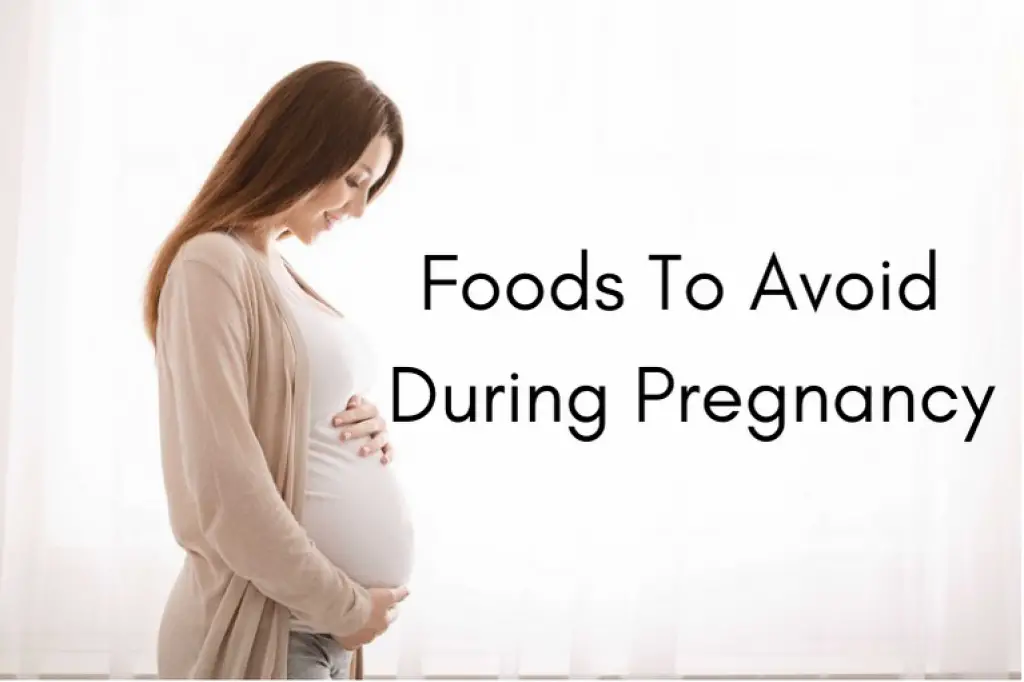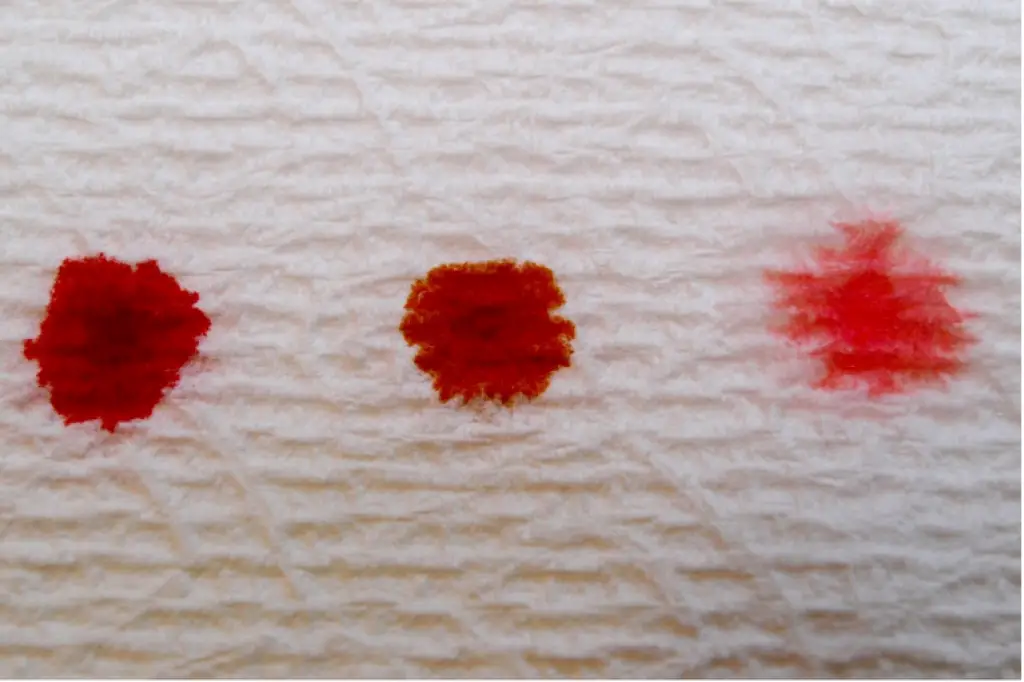All mom’s experiences vary in the case of symptoms. You will probably not experience the symptoms in the same way as the other mom feels. Besides, there is a difference in the pregnancy experience of a first-time mother. But some pregnancy symptoms are specific in all cases, like weight gain and absence of a period.
In this article, we will discuss pregnancy symptoms of how early they appear. Besides, some later pregnancy symptoms and some other important things a new mom wants to know.
Pregnancy Symptoms, How Early Appears
Some women experience early pregnancy symptoms in the first trimester, even within the first week. While in some cases, women may develop symptoms later on. At first, some women may not recognize the early pregnancy symptoms because they are related to the menstrual period symptoms.
Are pregnancy symptoms the same for every pregnant woman?
The symptoms of pregnancy vary from woman to woman, not only in quality but also in severity. However, the same woman may not experience the same symptoms in her second pregnancy. Furthermore, women notice the symptoms and signs at different times of their pregnancy.
In the case of a pregnancy test, it is based on an hCG Human Chorionic Gonadotropin in the blood and urine. hCG is a hormone produced after the implantation of a fertilized egg on the uterus wall. This article will find the most common symptoms in the later and early stages of pregnancy.
16 Pregnancy Symptoms How Early
In the early stages of pregnancy, several symptoms appear like:
1. Spotting And Cramping
The fertilized egg after conception attaches to the uterus wall. It is the cause of some early pregnancy signs such as cramping and sometimes spotting and implantation bleeding. After the egg fertilization, it occurs after 6 to 12 days.
Its cramps and bleeding are through light, but most women take it for menstrual cramps and bleeding as their period.
2. Missed Period
You can say that the missed period is a stamp symptom in pregnancy as there are no periods during the whole pregnancy. Sometimes ladies mistook cramping and spotting for a menstrual period. But for the woman having an irregular menstrual cycle may not notice this pregnancy sign immediately.
3. Breast Changes
In the first week of pregnancy, most women notice changes in their breasts. These changes include fullness, heaviness, tenderness, soreness, and tingling sensation, but it decreases after a few weeks.
4. Vaginal Discharge
In addition to bleeding, most women notice a milky white vaginal discharge. This discharge is due to the thickening in the walls of the vagina that immediately starts after conception. The cause of this white discharge is the increase in cells number that line the vagina.
This discharge does require any treatment because it is typically harmless and continues throughout the pregnancy. But in case you feel an itching or burning sensation or a bad smell, then discuss it with your doctor because it can be a bacterial or yeast infection.
5. Areola Darkening
The area around the nipple of the pregnant lady darkens a little in color.
6. Constipation
In early pregnancy, some women have constipation due to a high hormone level.
7. Fatigue
The early pregnancy symptoms are not specific, but often the pregnant ladies describe the feelings of fatigue in their early pregnancy period.
8. Vomiting, Nausea, And Morning Sickness
In pregnancy, nausea and vomiting can occur at any time. In some cases, women face severe nausea, while some never have morning sickness. Some women face these symptoms continuously throughout their pregnancy, while in some, it is evident in the 2nd and 8th weeks of their pregnancy.
9. Increased Urination
Due to the hormone changes, some women experience frequent urination at their 6th to 8th week of pregnancy. But in addition to this, if you face other symptoms such as burning or irritation during urination, you might be suffering from some urinary tract infections.
10. Dizziness
Changes in your blood pressure, blood glucose level, lightheadedness, faintness, and dizziness can occur in your early pregnancy period because they are related to your hormonal changes.
11. Headaches
Headaches can be throughout your pregnancy because they can be due to the changes in your hormones.
12. Sensitivity To Specific Smells
In early pregnancy, women become sensitive to certain smells that result in vomiting.
13. Mood Swings
In the first trimester, mood changes are widespread as they are related to hormone levels changes. They can be connected to stress or some other factors.
14. Back Pain
Back pain is mostly considered a symptom typical in late pregnancy, but it is also seen in the early pregnancy period. Some women experience their whole pregnancy period.
15. Food Cravings Or Aversions
During the whole pregnancy, women have cravings for certain foods, even for weird foods. They also develop the hate feeling for foods due to the vomit feelings from them.
16. Shortness Of Breath
Shortness of breath is a more common and general symptom in the late pregnancy period, but it is also seen in early pregnancy. It occurs because our body demands more oxygen to support the fetus.
8 Later Symptoms And Signs Of Pregnancy
There are many early pregnancy symptoms that continue in second and even third trimesters, like
- Fatigue
- Increased urination
- Mood changes
- Headaches
- Backache
- Food cravings
Besides, some symptoms improve with the advancement in pregnancy, such as tender breasts and nausea. Pregnancy later symptoms are related to weight gain and growing uterus until birth. These symptoms are not the same for every woman; even some women don’t experience any of these symptoms.
1. Varicose Veins
An increase in blood volume may result in the formation of small spider veins, varicose veins, and hemorrhoids.
2. Braxton-Hicks Contractions
Unlike real labor contractions, many women feel they experience uterine contractions before their delivery week. But you can easily differentiate between them because they are weak and irregular. In the case of labor contraction, it increases in both intensity and frequency.
3. Weight Gain
Mostly there is a weight gain of 25 to 35 pounds in maximum women during pregnancy. The weight gain occurs due to the growing fetus, breast enlargement, placenta, and increased fluid and blood volume.
4. Changes In Breast
Throughout the pregnancy, the breast changes take place. While during late pregnancy, there may be the expression of yellowish fluid colostrums that is immediately produced after pregnancy through nipples.
5. Swollen Ankles And Feet
The blood flow in the leg’s vein decreases due to the enlarged uterus’s pressure and leads to the fluid buildup.
6. Urine Leakage
The uterus pressure on the bladder results in urine leakage even in early pregnancy due to hormonal changes. Besides, during sneezing, coughing, or laughing, urine leakage takes place.
7. Heartburn
The stomach can move from its original position due to the growing uterus, resulting in heartburn. Furthermore, during pregnancy, the hormonal changes can result in the sphincter’s relaxation that controls the acid reflux from the stomach.
8. Shortness Of Breath
Your diaphragm moves more upward towards the chest that can possibly cause you out of breath more easily than before.
Some Early Symptoms Of Pregnancy Week-By-Week
First Week Symptoms
The first week’s symptoms are more like the experience before your periods. In these symptoms, the most common one includes lower back pain, Bloating belly, vaginal bleeding, headaches, and mood swings. Due to the changes in hormones, you have less control over your emotions.
Second-Week Symptoms
The second week’s symptoms depend on the ovulation, which is probably the ideal time and phase. You will experience these symptoms in the second week of your pregnancy.
- Cervical mucus that is helpful in the traveling of sperm towards the egg
- Breast tenderness or soreness due to hormonal changes
- Cervical changes
- Light spotting that is a small tinge of brown or red spots you might have noticed
- Increase in the desire to have sex
- You might experience a twinge or abdominal pain on the side of your abdomen.
Third-Week Symptoms
During the third week of pregnancy, the egg is not only fertilized but on its way to divide and re-divide into identical cells. The body shows early pregnancy symptoms due to changes in hormonal levels. Some most common third-week signal include
Implantation Bleeding
When the egg burrows into the uterus wall, you might notice a bit of spotting called implantation bleeding.
Nausea
With the advancement in the hCG hormone in your newly pregnant body, you may experience sudden sentiments of awfulness that influence you to vomit.
Breast Changes
Some changes occur in your boobs during the third week of pregnancy, especially getting sore of your boobs.
Home Pregnancy Test
The third week of pregnancy is the best time to take home pregnancy tests. If your result is still negative, then wait for a few days more before taking another test.
What Options Help Relieve And Soothe Pregnancy Symptoms?
There are several health care strategies and home remedies that can help you to relieve unpleasant pregnancy symptoms. There are many medications, including some antibiotics that are entirely safe to take during pregnancy.
Before taking any prescription or over the counter medications, vitamins, or supplements, talk to your doctor. Here is a small list of some health care measures that will help you deal with some troubling symptoms.
Proper exercise and diet will help you deal with many annoying symptoms and help keep your body weight under control. Adequate training helps a ton and strengthens abdominal muscles, but after your first trimester, avoid the exercises that demand to lie on back for quite a long time.
- A pregnancy belt can help you to support your abdomen.
- In case of swelling in legs, wear loose and light shoes.
- Sleep on a firm mattress and lying on a side with a pillow in your legs can be a comfortable and relieving position.

- If you have soreness and tenderness in your breast, then wear bras that help in good support.
- Eat frequent but small meals to avoid nausea, and in addition to this, they are also helpful in preventing heartburn.
- To avoid constipation and keep your bowels moving, eat a lot of fiber that means fresh fruits. Stool softeners and wool are both helpful in this condition.
When To Take A Pregnancy Test?
Before taking a pregnancy test, you can wait till you miss your period. It will confirm that your pregnancy symptoms are not related to your periods. Besides, you can quickly tell when you have a regular menstrual cycle when you have missed your periods.
If you have an irregular period’s cycle and your date changes every month, then take a few weeks before the test. Besides, a home pregnancy test is useful in confirming. To verify your pregnancy test is accurate, take one day before the home pregnancy test.

In some cases, they receive a false-negative while you are undoubtedly pregnant. A false negative occurs because of the lack of hormones during pregnancy that indicates your pregnancy. Rather than taking another home test, visit your clinical doctor to have a lab-quality difficulty.
If the pregnancy test is positive, you are indeed pregnant because false positives are sporadic cases. To verify your pregnancy, you will need an ultrasound before any other thing. After your pregnancy is confirmed, consult your doctor about the proper diet plan and foods to avoid during pregnancy.
Also read
- Spotting or bleeding in early pregnancy | should you be worried?
- 8 Fruits To Avoid During Pregnancy
- 20 Foods To Avoid During Pregnancy – A Complete Guide
Pregnancy Symptoms Vs. (Premenstrual Syndrome) PMS
There are maximum symptoms like fatigue, mild cramping, fatigue, back pain, and breast tenderness that women experience after ovulation or premenstrual syndrome. You cannot tell whether PMS or pregnancy is until your test is positive or your periods stop.
End Words By The Writer
In pregnancy, many of the signs and symptoms are not unique to pregnancy. Many symptoms are the same as at the start of the menstruation cycle. Some of them may indicate that you are either sick or your period is about to start. And in some cases, ladies have no apparent symptoms in their early pregnancy.
If you are missing your periods or have noticed the above symptoms, you can contact your health care provider or may take a pregnancy test at your home. If your home pregnancy test results in positive, then consult your doctor. Begin parental care whenever your pregnancy is confirmed.
FAQ’S
How Early Do Pregnancy Symptoms Start?
Most women get the symptoms within a few days after conception, and some women get a week before their period. The most common symptoms women experience these days are bloating a few days after conception, sensitivity to smell, fatigue, tender breast, and nausea e.t.c.
How Long Can Pregnancy Go Undetected?
According to the research, the denied pregnancy state is not rare. In about 1 out of 475 pregnancies, mostly women are unaware of their pregnancy even in their 20th week and maybe for longer. It means it is not counted in rare conditions and is quite common.
Why Am I Having All The Symptoms Of Pregnancy But A Negative Home Test?
In many cases, women have all the symptoms of pregnancy, but their test is negative. If you are having symptoms and feeling like you are pregnant doesn’t mean you are, but undoubtedly the pregnancy test is wrong. If you are pregnant but have tested too early will not show because there is not enough hCG hormone yet in your urine.
LATEST POSTS
- Pain around ribs and back symptoms, causes, and treatment
- How can unkind self-talk impact your mental health?
- Pimples on buttocks home remedies
- Foods to avoid while taking metformin
- 20 foods to eat after wisdom teeth removal
Sharing is caring 🙂 Share if you like





